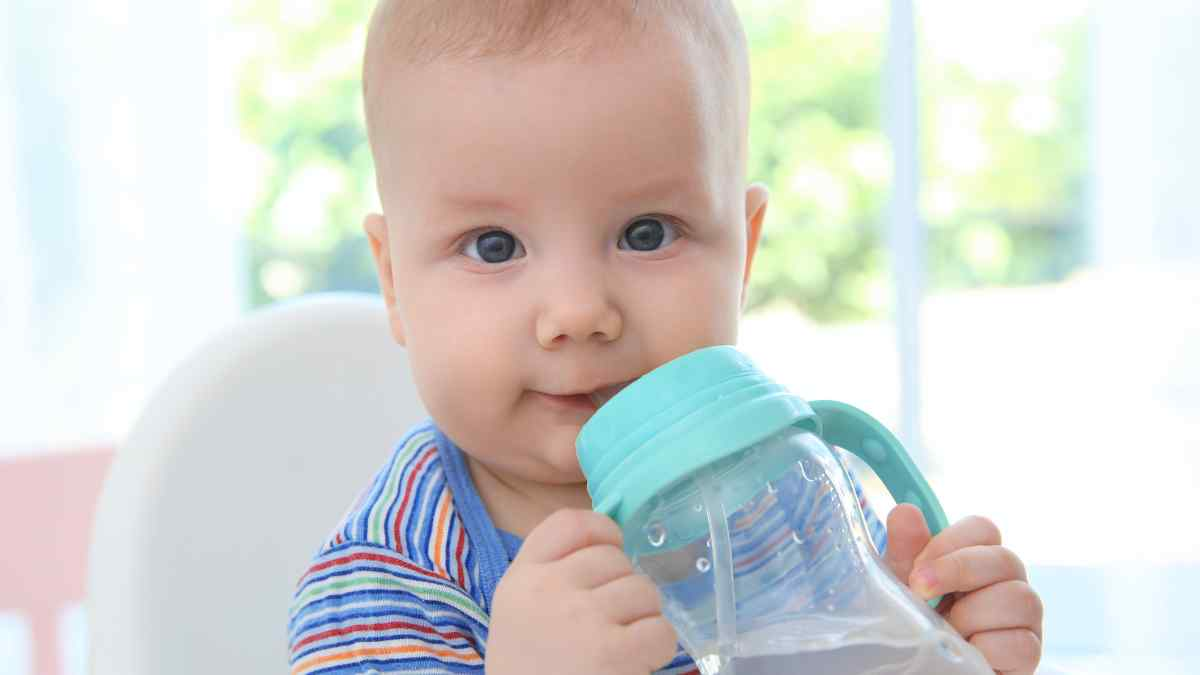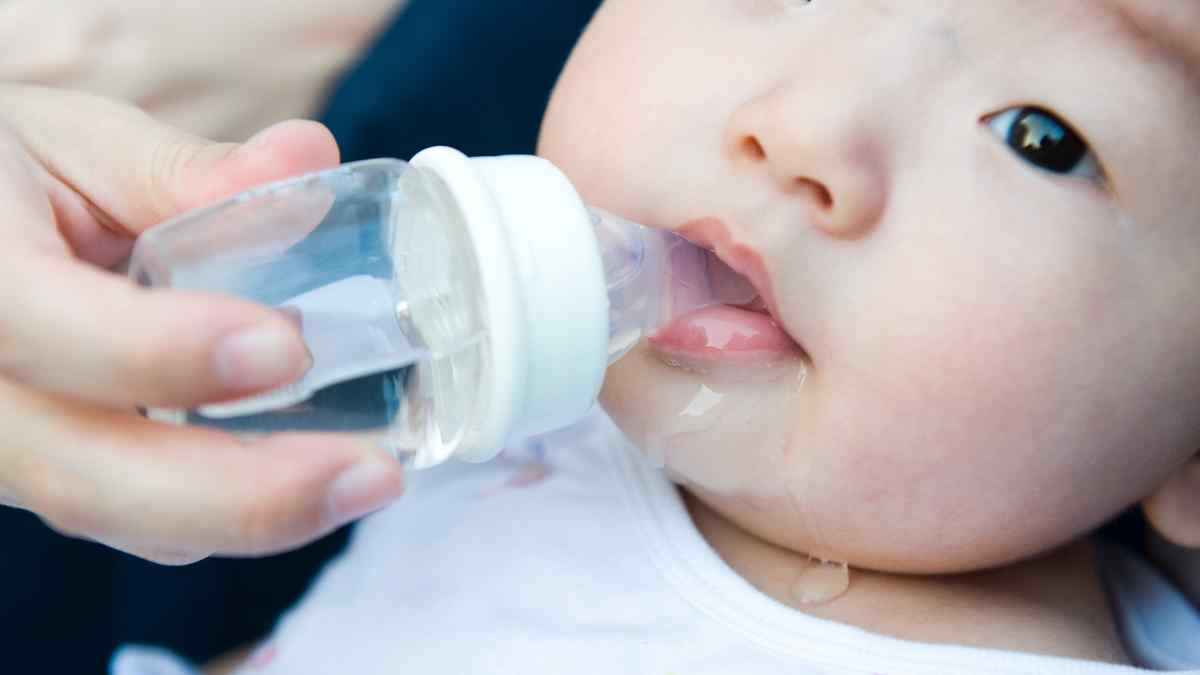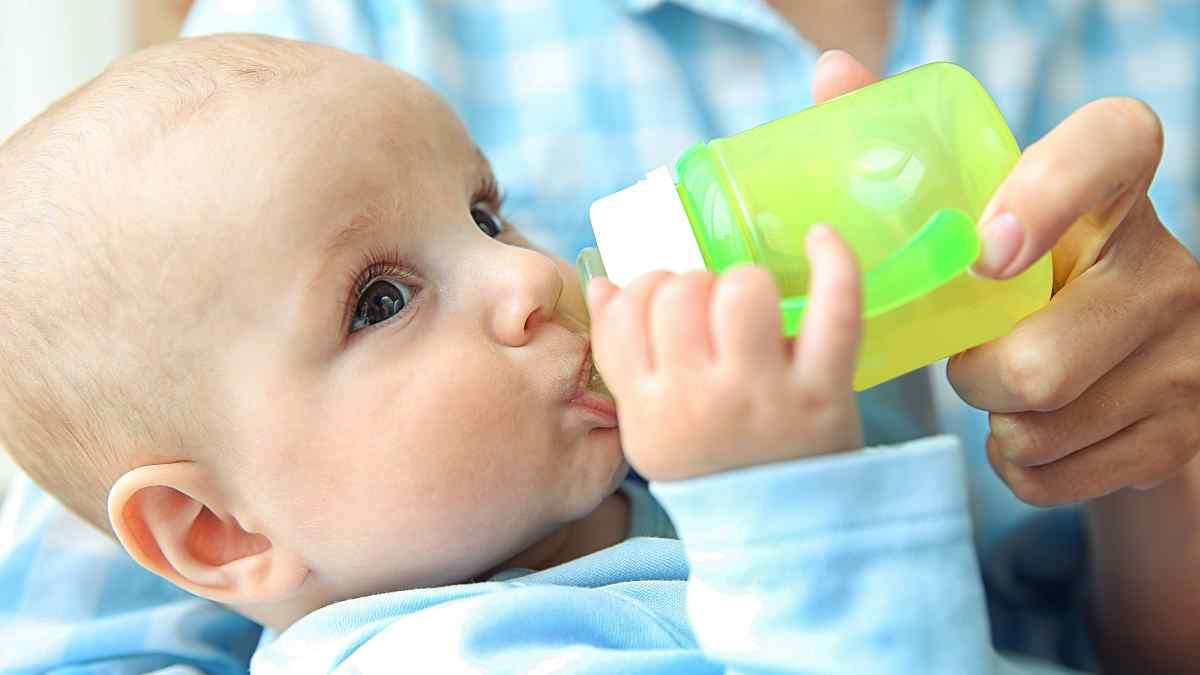From the moment they take their first breath, babies embark on an incredible journey of growth and discovery. As they navigate the world, the nutrients they take in play a paramount role in ensuring their healthy development. While it’s common knowledge that babies need milk for nourishment, what’s less emphasized is the significance of proper hydration.
Just as adults need water to function optimally, so do our tiny counterparts. Yet, their hydration needs are distinct, and understanding them is vital. This article delves into the world of baby hydration, exploring why those tiny sips matter greatly and how they lay the foundation for a thriving start in life.

Why Is Hydration Crucial for Babies?
When we think of staying hydrated, images of water bottles, athletes sipping on sports drinks after intense physical activity, or people drinking water during hot weather may come to mind. However, hydration is just as, if not more, crucial for our youngest members of society. Babies have unique hydration needs, and here’s why.
Water Composition in a Baby’s Body
Believe it or not, a higher percentage of a baby’s body is made up of water than that of adults. While drinking water is emphasized for adults to maintain body functions, for babies, it’s even more essential. The European Food Safety Authority states that up to 75% of a baby’s weight can be attributed to water content. This makes them more susceptible to dehydration. Signs of dehydration in infants include fewer wet diapers, sunken eyes, a sunken soft spot on the baby’s head, and dark colored urine.
Rapid Growth and Development
A child’s drink, whether it’s breastmilk or formula, is more than just sustenance; it plays a pivotal role in their rapid growth and development. For younger children, especially babies, breast milk or formula provides the majority of their water intake, keeping them at a healthy weight and ensuring that their cells function optimally. While older children might be encouraged to drink water from fancy cups or water bottles throughout the day, infants rely heavily on their milk sources. Drinking plenty of liquids supports the many physiological changes they undergo at this tender age.
Thermoregulation and Babies
Thermoregulation, or the process of maintaining body temperature, is different in babies. Their body surface area is greater in proportion to their weight, meaning they can lose water more rapidly, especially during hot days. Babies don’t drink sports drinks or use ice cubes to cool down. They rely on healthy hydration from breast milk or formula to help regulate their body temperature. It’s important to note that while babies might not feel thirsty in the way adults do, dehydration occurs faster in their bodies. This makes it essential for parents to monitor common signs like dry lips and ensure they’re drinking enough water or milk for their age.
Signs of Dehydration in Babies

Ensuring our little ones stay hydrated is more than just handing them a water bottle or encouraging them to drink water throughout the day. It’s about understanding the vital signs and signals that indicate their hydration levels. Babies, unlike older children, cannot grab a fancy cup or tell us when they need to drink. So, as caregivers, it becomes our responsibility to be vigilant. Here are some of the essential signs of dehydration in babies.
Physical Symptoms
1. Dark Yellow Urine: When babies drink enough water or are hydrated adequately through breastmilk or formula, their urine should be pale yellow. Dark yellow urine is often the first sign that a child needs more water.
2. Fewer Wet Diapers: One of the easiest ways to monitor a baby’s hydration is through the frequency of their wet diapers. A significant reduction in the number suggests that they might not be getting enough fluids.
3. Sunken Eyes: While this symptom might seem alarming, it’s a noticeable physical indicator of dehydration. The eyes might appear less shiny and more deep-set.
4. Dry Mouth: Babies might have dry lips or gums, indicating they need to drink more. This is especially noticeable when they are feeding or sucking.
Behavioral Signs
1. Increased Fussiness: Dehydration can make babies irritable. If your usually calm baby suddenly becomes fussy without any apparent reason, check other signs to ensure they are not dehydrated.
2. Lethargy: Babies who are seriously dehydrated might seem lethargic or less active than usual. It’s more than just the usual sleepy periods; it’s a noticeable decrease in energy and responsiveness.
3. Reduced Tear Production: If your baby cries without tears, it could indicate mild to serious dehydration. While newborns might not produce tears, older babies usually do.
Prevention is Better than Cure
Instead of sugary drinks, artificially sweetened drinks, or even fruit juices filled with added sugars, prioritizing pure water, breastmilk, or formula is essential. Items like popsicle molds filled with fruit juice might seem appealing for older children, but for babies, the pure hydration from their primary drink is crucial.
Additionally, avoid offering drinks like flavored milk or sugar-sweetened beverages that can lead to tooth decay, and remember that babies have a different water need than adults. If you’re ever in doubt about how much water your child should have or if they’re showing signs of dehydration, it’s vital to seek medical assistance or contact a pediatrician immediately.
The Right Amount of Fluids for Babies at Different Ages

Ensuring our little ones stay hydrated is more than just handing them a water bottle or encouraging them to drink water throughout the day. It’s about understanding the vital signs and signals that indicate their hydration levels. Babies, unlike older children, cannot grab a fancy cup or tell us when they need to drink. So, as caregivers, it becomes our responsibility to be vigilant. Here are some of the essential signs of dehydration in babies.
Physical Symptoms
1. Dark Yellow Urine: When babies drink enough water or are hydrated adequately through breastmilk or formula, their urine should be pale yellow. Dark yellow urine is often the first sign that a child needs more water.
2. Fewer Wet Diapers: One of the easiest ways to monitor a baby’s hydration is through the frequency of their wet diapers. A significant reduction in the number suggests that they might not be getting enough fluids.
3. Sunken Eyes: While this symptom might seem alarming, it’s a noticeable physical indicator of dehydration. The eyes might appear less shiny and more deep-set.
4. Dry Mouth: Babies might have dry lips or gums, indicating they need to drink more. This is especially noticeable when they are feeding or sucking.
Behavioral Signs
1. Increased Fussiness: Dehydration can make babies irritable. If your usually calm baby suddenly becomes fussy without any apparent reason, check other signs to ensure they are not dehydrated.
2. Lethargy: Babies who are seriously dehydrated might seem lethargic or less active than usual. It’s more than just the usual sleepy periods; it’s a noticeable decrease in energy and responsiveness.
3. Reduced Tear Production: If your baby cries without tears, it could indicate mild to serious dehydration. While newborns might not produce tears, older babies usually do.
Prevention is Better than Cure
Instead of sugary drinks, artificially sweetened drinks, or even fruit juices filled with added sugars, prioritizing pure water, breastmilk, or formula is essential. Items like popsicle molds filled with fruit juice might seem appealing for older children, but for babies, the pure hydration from their primary drink is crucial.
Additionally, avoid offering drinks like flavored milk or sugar-sweetened beverages that can lead to tooth decay, and remember that babies have a different water need than adults. If you’re ever in doubt about how much water your child should have or if they’re showing signs of dehydration, it’s vital to seek medical assistance or contact a pediatrician immediately.
Conclusion
In the intricate journey of early childhood, the smallest things often carry the most profound significance. As we’ve uncovered in this article, ensuring our little ones maintain proper hydration isn’t just a matter of quenching their thirst—it’s pivotal for their overall well-being, growth, and development.
While their tiny sips might seem inconsequential in the vast realm of parenting, they lay the foundation for a healthier start in life. As caregivers, it’s our duty to recognize, respond, and educate ourselves about their unique hydration needs. In doing so, we not only nurture their bodies but also safeguard their future, one sip at a time.
Did this article help you? Please let us know by commenting below. If you have any questions, don’t hesitate to ask.



